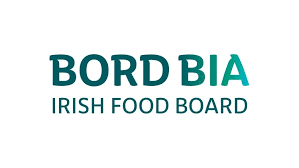Strong Performance in Cattle and Beef Markets Amid Tight Supplies
Cattle & Beef
With cattle availability for processing remaining tight across much of Europe and the UK, the deadweight cattle trade has continued to perform strongly. The limited beef availability, combined with stable demand in key export markets, has contributed to recent price increases.
Quotes
Quotes from major processors for prime cattle have continued to trend upward, favouring producers. Base quotes for steers are in the region of €6.55-6.65/kg, while quotes for heifers are around €7.35/kg. Reports indicate higher prices have been negotiated with producer groups and factories offering increased bonuses. R grading young bulls under 24 months of age are steady, generally working off a base of €6.60-6.70/kg.
The cow trade remains very strong, with a further jump this week due to strong demand for well-fleshed cows. R grading cows are quoted at €6.40/kg, while quotes for O grading cows range from €6.10-€6.15/kg, depending on quality and carcase weight. Factories are quoting well-covered P grading cows starting at €5.80/kg, with room for negotiation.
Reported Prices
For the week ending 23rd February 2025, the Irish R3 steer price increased by 18c/kg to €6.48/kg, while the R3 heifer price increased by 16c/kg to €6.48/kg. Irish prices continue to trend higher than the EU average, although recent weeks have seen similar increases across the trading bloc as cattle supplies tighten. The average R3 young bull price in the EU last week was €6.16/kg, up 3c/kg from the previous week.
In the UK, tighter cattle supplies and firm demand have led to continued firming of deadweight beef prices. This week, the average UK R3 steer price increased by 15c/kg to €7.61/kg.
Note that reported prices exclude VAT but include all bonus payments such as in-spec bonuses and breed-based producer groups.
Throughput
There were 38,944 cattle processed in DAFM-approved plants last week, a decrease of just over 500 head from the same week in 2024. Total cattle throughput for the first eight weeks of the year is on par with 2024 levels at 284,351 head. However, cattle availability for slaughter is expected to contract in the weeks ahead. A strong live export trade and the processing of cattle at younger ages and lighter carcase weights in Q4 2024 have contributed to a contraction in cattle numbers of slaughter age currently on farms.
Average carcase weights have continued to trend below previous years, with this downward trend expected to continue in the short to medium term. Calf registrations to suckler cows are declining, while the number of beef-sired calves produced from the dairy herd continues to increase.
Live Exports
Tighter cattle supplies across Europe and movement restrictions in some key cattle trading markets due to the spread of bluetongue are key factors behind the continued firm demand for Irish cattle in key export markets in early 2025.
The number of weanling and store cattle traded during the early weeks of 2025 is trending higher than previous years, with firm demand from Northern Ireland, Spain, Eastern Europe, and North Africa contributing to the uplift in export levels. The strong reputation of Irish cattle with key trading partners has contributed to this steady demand.
The outlook for the 2025 calf trading season is positive, with early indications of firm demand from key customers and markets. Numbers being traded are expected to pick up strongly in the next few weeks in line with the peak calving of the dairy herd.
Bord Bia

